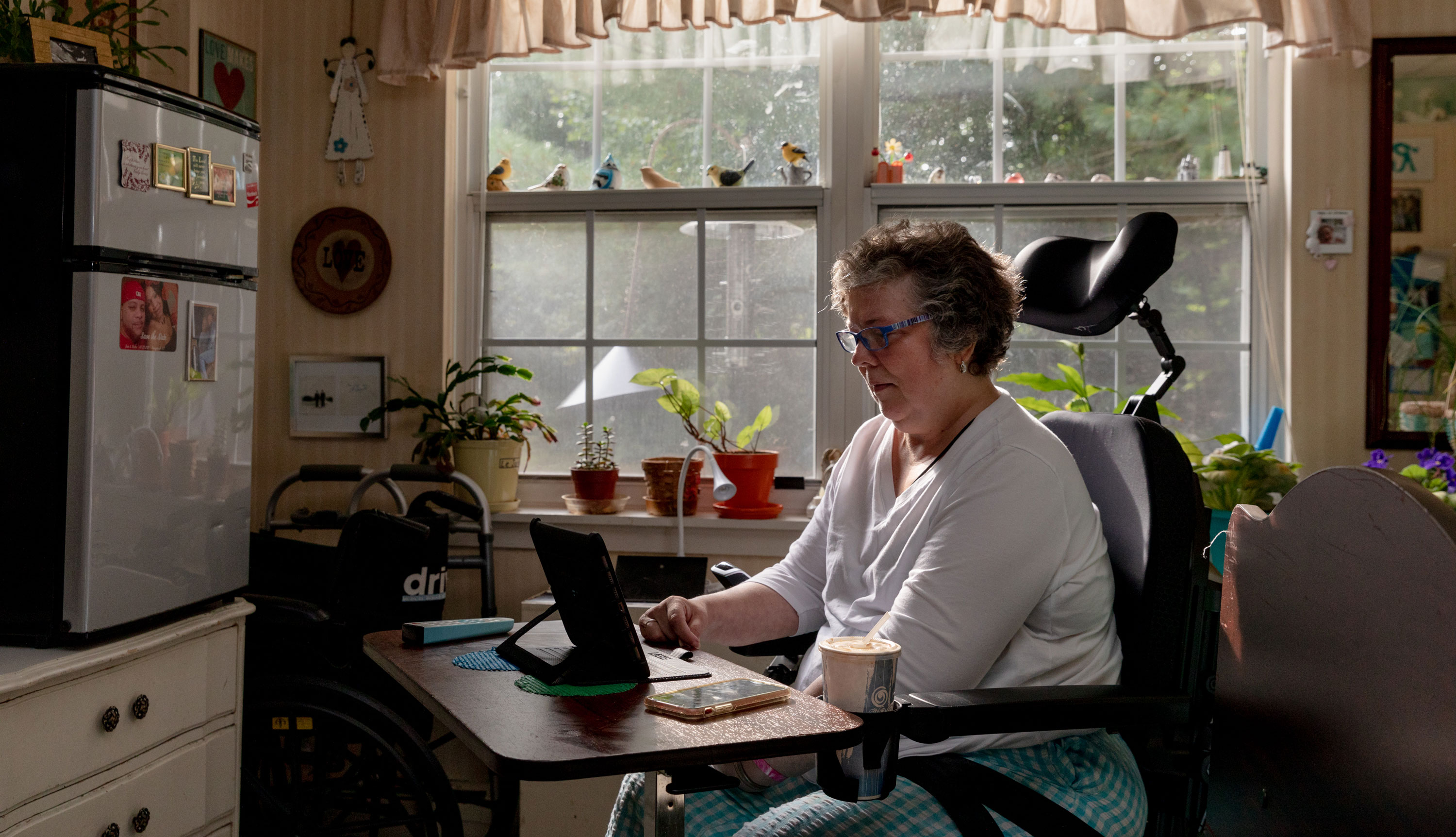AARP Hearing Center

When COVID-19 swept through her nursing home in Mystic last year, Jeannette Sullivan-Martinez, 57, spent two months locked down in her room.
Luckily, her kids had already set her up with devices that would become a crucial connection to the outside world. She listened to music on her wireless speaker, video-chatted with her family using her computer tablet and cellphone and streamed her favorite TV shows.
Sullivan-Martinez, who has multiple sclerosis and is unable to walk, also used her tablet to remotely testify in favor of a new law that will let all of Connecticut’s more than 18,000 nursing home residents equip their rooms with electronics, including cameras, with their roommate’s consent.
She says that while she is fortunate to be in a facility that allows technology, other nursing homes have resisted.
“They’re called nursing homes, not nursing hospitals,” Sullivan-Martinez says. “If we were in our own homes, we’d have the right to have whatever electronics we want.”
The camera law, which took effect July 1, was among a sweeping set of AARP-backed nursing home reforms that the state General Assembly passed in June.
Wins for residents
The measures will, among other things, require nursing homes to implement better infection controls, keep a two-month stockpile of personal protective equipment and provide at least three hours of direct care per resident, per day (an increase from the current 1.9 hours required).
The laws aim to fix longtime deficiencies that were exacerbated by the coronavirus pandemic. Nursing home residents have accounted for almost half of the state’s more than 8,200 COVID-19-related deaths.
“They went through a harrowing experience,” says state Senate Minority Leader Kevin Kelly (R-Stratford). “We needed to make sure their interests were protected.”
New legislation also raises the monthly personal-needs allowance for residents on Medicaid from $60 to $75, a measure Kelly said had bipartisan support.
Residents use such money for extras like getting their hair done or buying pizza or birthday cards. “Which to me is about preserving their dignity,” Kelly says.
The pandemic-related visitor ban underscored how technology could connect families with loved ones, says Anna Doroghazi, AARP Connecticut’s advocacy and outreach director.
Even with restrictions loosened, some family still live too far away for regular visits. Cameras can help them see “if Dad’s losing weight or Mom’s been wearing the same shirt for five days,” Doroghazi says. “Technology isn’t just a thing that helps people say ‘Gotcha’ when something goes wrong; it’s a way to enhance people’s lives.”
AARP Connecticut keeps pushing for improvements to long-term care, whether in facilities or residents’ own homes. Next year, it will continue to advocate for better conditions for nursing home workers and residents and will also focus on policies that support the state’s 460,000 unpaid family caregivers.
To learn more about AARP’s work on long-term care, contact Anna Doroghazi at adoroghazi@aarp.org or call 866-295-7279.
Natalie Missakian is a writer living in Cheshire, CT.
More on Long-Term Care:































































